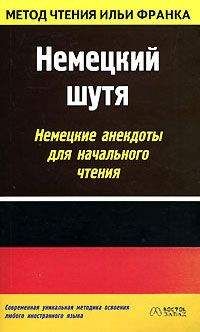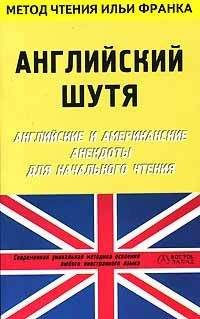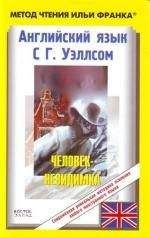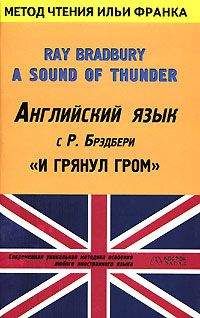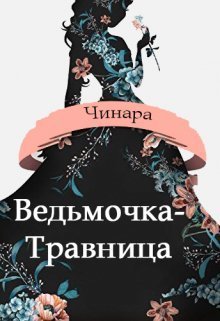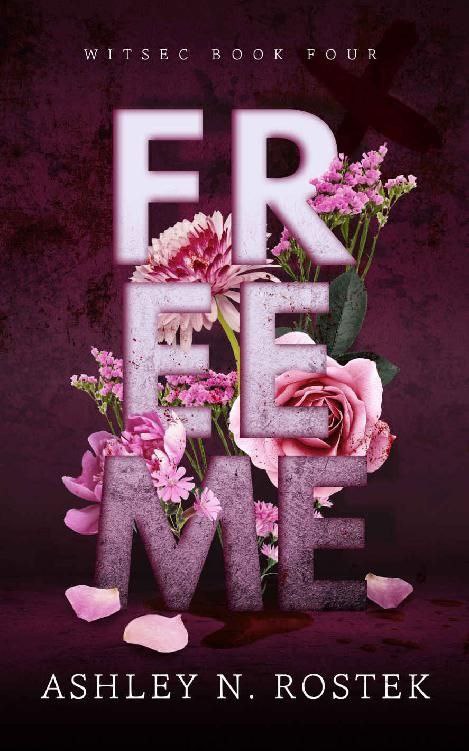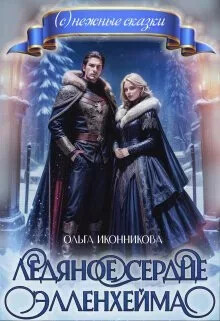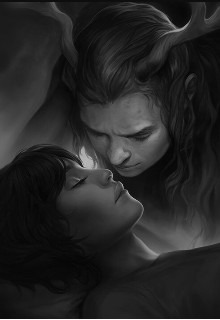Илья Франк - Английский шутя. Английские и американские анекдоты для начального чтения
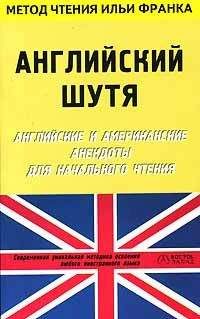
Помощь проекту
Английский шутя. Английские и американские анекдоты для начального чтения читать книгу онлайн
Doctor: A shoebox (коробку от ботинок).
Patient: My hair keeps falling out. What can you give me to keep it in?
Doctor: A shoebox.
My hair keeps falling out.
Doctor: What seems to be the trouble? (что представляется проблемой)
Patient: Doctor, I keep getting the feeling (доктор, у меня постоянно такое чувство: «продолжаю получать чувство») that nobody can hear what I say (что никто не слышит, что я говорю).
Doctor: What seems to be the trouble?
Doctor: What seems to be the trouble?
Patient: Doctor, I keep getting the feeling that nobody can hear what I say.
Doctor: What seems to be the trouble?
What seems to be the trouble?
Doctor: You're in good health (вы совершенно здоровы: "вы в добром здравии"; health [helƟ]). You'll live to be eighty (вы доживете до 80).
Patient: But, doctor, I am 80 right now (но доктор, мне сейчас 80).
Doctor: See, what did I tell you (видите, что я вам говорил).
Doctor: You're in good health. You'll live to be eighty.
Patient: But, doctor, I am 80 right now.
Doctor: See, what did I tell you.
You're in good health.
See, what did I tell you.
Patient: Doctor, I have a serious memory problem (у меня серьезная проблема с памятью; serious [ˈsɪrɪǝs]; memory [ˈmemǝrɪ]). I can't remember anything! (я ничего не могу запомнить, вспомнить)
Doctor: So, since when did you have this problem? (так, с какого времени у вас эта проблема)
Patient: What problem? (какая проблема)
Patient: Doctor, I have a serious memory problem. I can't remember anything!
Doctor: So, since when did you have this problem?
Patient: What problem?
I can't remember anything!
A man, after being hurt (человек, после того, как получил повреждения, травму: to hurt — причинить боль, повредить, ушибить), calls 911 for help (звонит 911 за помощью).
Man: Operator, operator, call me an ambulance! (вызовите мне скорую помощь / назовите меня скорой помощью — игра слов: to call — вызывать/называть; ambulance [ˈæmbjulǝns])
Operator: Okay, sir, you're an ambulance! (вы — скорая помощь)
A man, after being hurt, calls 911 for help.
Man: Operator, operator, call me an ambulance!
Operator: Okay, sir, you're an ambulance!
Call me an ambulance!
A drummer, sick of all the drummer jokes (ударник, уставший от всех шуток про ударников), decides to change his instrument (решает сменить инструмент). After some thought (после некоторого раздумья), he decides on the accordion (он выбирает аккордеон). So he goes to the music store (и он идет в музыкальный магазин) and says to the owner (и говорит хозяину), "I'd like to look at the accordions, please (я хочу взглянуть на аккордеоны, пожалуйста)."
The owner gestures (указывает) to a shelf in the corner (на полку в углу) and says, "All our accordions are over there (все наши аккордеоны вон там)."
After browsing (после беглого рассматривания; browse — молодые побеги; to browse — ощипывать листья, молодые побеги; пролистывать, небрежно просматривать), the drummer says, "I think I'd like the big red one in the corner (я думаю, мне подойдет большой красный в углу)."
The store owner looks at him (смотрит на него) and says, "You're a drummer, aren't you? (вы ударник, не так ли)"
The drummer, crestfallen (упавший духом: crest — гребешок /петуха/ + to fall — падать), says, "How did you know? (как вы узнали)"
The store owner says, "That 'big red accordion' is the radiator (тот большой красный аккордеон — радиатор; radiator [rædɪˈeɪtǝ(r)])."
A drummer, sick of all the drummer jokes, decides to change his instrument.
After some thought, he decides on the accordion. So he goes to the music store and says to the owner, "I'd like to look at the accordions, please."
The owner gestures to a shelf in the corner and says, "All our accordions are over there."
After browsing, the drummer says, "I think I'd like the big red one in the corner."
The store owner looks at him and says, "You're a drummer, aren't you?"
The drummer, crestfallen, says, "How did you know?"
The store owner says, "That 'big red accordion' is the radiator."
I'd like to look at the accordions, please.
How did you know?
A guy walks into the doctor's office and says (человек заходит в кабинет врача и говорит), "Doc, I haven't had a bowel (кишка, кишечник) movement (движение) in a week! (доктор, у меня нет стула неделю)" The doctor gives him a prescription (дает ему рецепт) for a mild laxative (мягкого слабительного; laxative [ˈlæksǝtɪv]) and tells him, "If it doesn't work, let me know (если не поможет, дайте мне знать)."
A week later (спустя неделю), the guy is back (человек возвращается): "Doc, still (по-прежнему) no movement!"
The doctor says, "Hmm, guess (/мне/ кажется) you need (вам нужно) something stronger (что-то сильнее)," and prescribes (выписывает) a powerful laxative (сильное слабительное; power — мощь).
Still (все же, тем не менее) another week later (спустя еще неделю: "спустя другую неделю") the poor (несчастный) guy is back: "Doc, STILL nothing! (по-прежнему ничего)"
The doctor, worried (обеспокоенный), says, "We'd better get some more information about you (нам лучше получить побольше информации о вас) to try to figure out what's going on (чтобы попытаться выяснить, что происходит). What do you do for a living? (что вы делаете "для проживания" = чем вы зарабатываете на жизнь)"
"I'm a musician (я музыкант)."
The doctor looks up (поднимает глаза) and says, "Well, that's it! (ну, понятно) Here's (здесь: "вот") $10.00. Go get something to eat! (идите купите что-нибудь поесть)"
A guy walks into the doctor's office and says, "Doc, I haven't had a bowel movement in a week!" The doctor gives him a prescription for a mild laxative and tells him, "If it doesn't work, let me know."
A week later the guy is back: "Doc, still no movement!"
The doctor says, "Hmm, guess you need something stronger," and prescribes a powerful laxative.
Still another week later the poor guy is back: "Doc, STILL nothing!"
The doctor, worried, says, "We'd better get some more information about you to try to figure out what's going on. What do you do for a living?"
"I'm a musician."
The doctor looks up and says, "Well, that's it! Here's $10.00. Go get something to eat!"
That's it!
What do you do for a living?
"Do you believe in life after death? (вы верите в жизнь после смерти)" the boss (начальник) asked one of his employees (спросил одного из его служащих; employee [emplɔɪˈi:]).
"Yes, Sir (да, сэр)," the new recruit replied (новый работник ответил; recruit [rɪˈkru:t]).
"Well, then, that makes everything just fine (ну, это "делает все просто прекрасным")," the boss went on (продолжал). "After you left early yesterday (после того, как вы ушли рано вчера; to leave-left-left — покидать, уходить) to go to your grandmother's funeral (чтобы пойти на похороны вашей бабушки; funeral [ˈfjun(ǝ)r(ǝ)l]), she stopped in to see you (она заглянула, зашла вас повидать)."
"Do you believe in life after death?" the boss asked one of his employees.
"Yes, Sir," the new recruit replied.
"Well, then, that makes everything just fine," the boss went on. "After you left early yesterday to go to your grandmother's funeral, she stopped in to see you."
That makes everything just fine.
A musical director was having a lot of trouble with one drummer (дирижер имел много неприятностей с одним ударником). He talked and talked and talked (он говорил, говорил и говорил) with the drummer, but his performance simply didn't improve (но его исполнение просто не улучшалось; performance [pǝ(r)ˈfɔ:mǝns]).
Finally (наконец), before the whole orchestra, he said (перед всем оркестром он сказал; orchestra [ˈɔ:kɪstrǝ]), "When a musician just can't handle his instrument (когда музыкант просто не умеет обращаться со своим инструментом; instrument [ˈɪnstrument]) and doesn't improve when given help (и не совершенствуется, когда получает помощь), they take away the instrument (/они/ забирают /прочь/ инструмент), and give him two sticks, and make him a drummer (и дают ему две палочки и делают его ударником)."
A stage whisper ("театральный" шепот) was heard from the percussion section (был услышан cо стороны ударников; percussion — столкновение; percussion instrument — ударный инструмент): "And if he can't handle even that (а если он не может владеть даже этим; to handle — оперировать; справляться), they take away one of his sticks (забирают одну из его палочек) and make him a conductor (и делают его дирижером)."
A musical director was having a lot of trouble with one drummer. He talked and talked and talked with the drummer, but his performance simply didn't improve.
Finally, before the whole orchestra, he said, "When a musician just can't handle his instrument and doesn't improve when given help, they take away the instrument, and give him two sticks, and make him a drummer."
A stage whisper was heard from the percussion section: "And if he can't handle even that, they take away one of his sticks and make him a conductor."
He can't handle even that.
For the first time in many years (в первый раз за много лет), an old man traveled from his rural town to the city (пожилой человек приехал из cвоего провинциального городка в город) to attend a movie (посетить кино). After buying his ticket (после покупки билета, купив билет), he stopped to purchase some popcorn (он остановился купить попкорна; to purchase [ˈpǝ:rtʃǝs] - приобретать).
Handing the attendant (давая служащему; attendant [ǝˈtendǝnt]) $1.50, he couldn't help but comment (он не смог удержаться от замечания; to comment [ˈkɔment]), "The last time I came to the movie (последний раз, когда я был в кино), popcorn was only 15 cents (попкорн был только 15 центов)."
"Well, sir (ну, сэр)," the attendant replied (ответил) with a grin (с усмешкой), "You're really going to enjoy yourself (вы действительно развлечетесь). We have sound now… (теперь у нас есть звук = теперь кино звуковое)"
